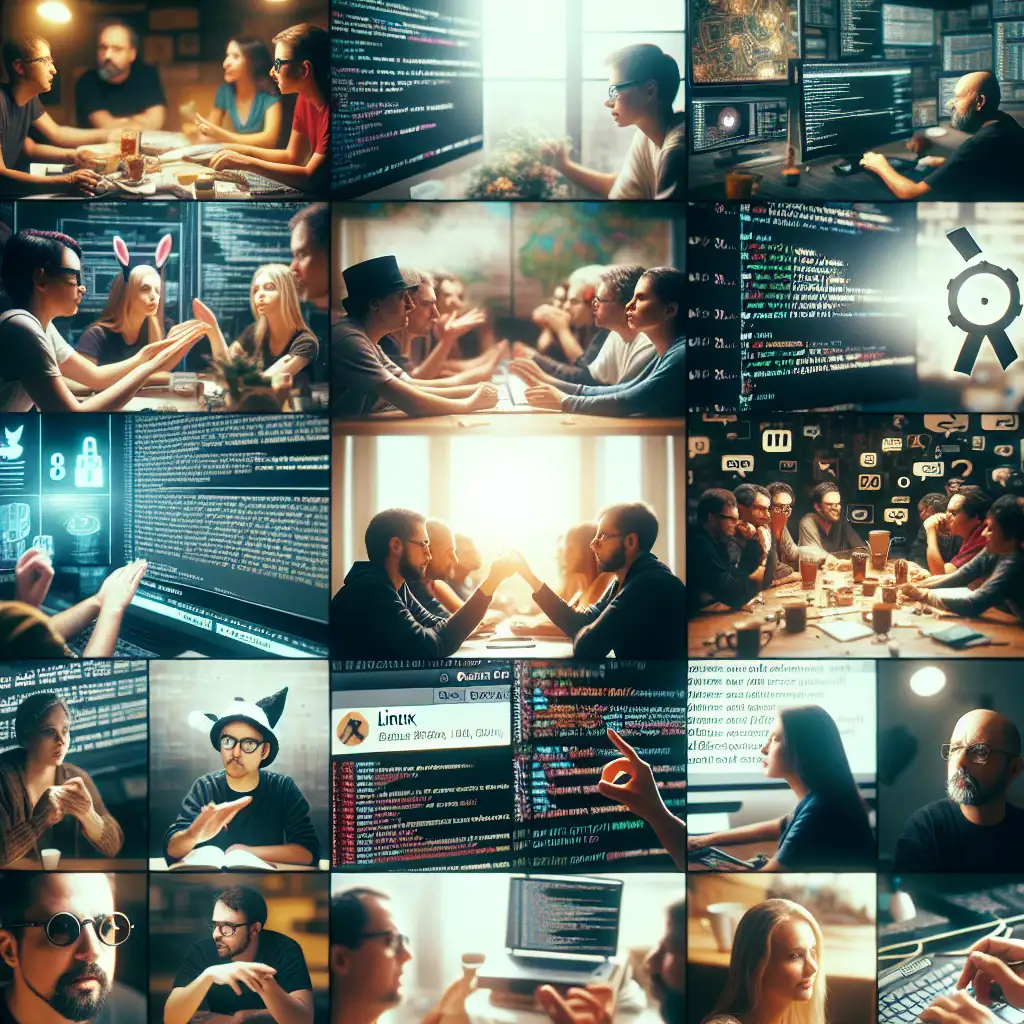Leveraging Reddit for Real-World Linux Mastery
Early exposure to unpredictable, unscripted problems is essential for genuine Linux competency. Static tutorials offer only limited value. Instead, tap into Reddit’s Linux communities—the modern equivalent of a crowded server room chat—where edge cases, retro hardware, and distribution-specific nuances are dissected daily.
Subreddit Ecosystem: Targeted Expertise, Not Noise
- r/linux4noobs: Low signal-to-noise ratio for novices—less RTFM gatekeeping, more practical breakdowns (e.g., “Why does
chmod +xsometimes do nothing?”). - r/linuxquestions: Breadth from scripting failures in RHEL 9.2 to resolving Wayland display glitches on Arch. Good index for
journalctltroubleshooting patterns. - r/commandline: Deep-dive shell discussions. Real-world pipeline solutions, e.g., parsing 10GB log files with
awkinstead of Python. - r/linuxadmin: Focus on infrastructure. Expect questions on SELinux contexts, systemd race conditions, and Proxmox weirdness.
- r/unixporn: Not just theming—find actual
.config/i3/configexcerpts, Tmux workflows, and polybar scripts under the hood.
Technique: How to Extract High-Value Insight
1. Observe, Don’t Announce.
- Scrape the top weekly threads for recurring themes (e.g., consistent confusion with
systemctlmasks). - Note real error outputs:
Compare how responders diagnose: group mismatch, LDAP misconfig, or typos?chown: invalid user: 'deploy'
2. Prioritize Community Challenges Over Guides.
- Ignore the “sticky” basic guides for now.
- Jump straight to subreddit-wide challenges—e.g., in r/commandline, implement file-watcher scripts using only inotify-tools (
inotifywait -m ./). Try and break the posted solutions. Ask why. - Analyze accepted answers. Most accurate posts include
--debugflag outputs, full kernel version (uname -a), and environmental edge cases.
3. Ask Precisely, Debug Systematically.
- Always include:
- Distribution, point-release, relevant packages (
dpkg -l | grep openssh). - Full terminal session (not just the end error).
- The exact “expected vs. actual” behavior.
- Distribution, point-release, relevant packages (
- For example, troubleshooting:
Don’t omit ownership checks:ssh -vvv user@10.10.10.20 # Output: debug1: Authentications that can continue: publickey # Permission denied (publickey).ls -ld ~/.ssh && ls -l ~/.ssh/authorized_keys
4. Clone and Hack Real Configurations.
- Download random
.vimrcor.bashrcfrom r/unixporn. - Isolate in a clean VM (
alpine:3.18is minimal and fast). - Systematically comment/uncomment blocks—see which plugins (e.g., fzf, zsh-autosuggestions) break compat with
dashshell derivatives. - Track side effects; sometimes visual tweaks introduce subtle slowdowns. Document what you revert.
Practical Case: SSH Key Authentication Failure
Suppose:
Permission denied (publickey)
after generating a new ED25519 key on Fedora 38. Reddit post history reveals:
| Hypothesis | Diagnostic Command | Result |
|---|---|---|
| File permissions issue | ls -la ~/.ssh/ | Found authorized_keys is 644 |
| SELinux interference | getenforce / audit2why | Error found in logs |
| Wrong pubkey format | ssh-keygen -lf ~/.ssh/id_ed25519.pub | Valid key |
One seasoned user suggests:
restorecon -Rv ~/.ssh
A fix not commonly covered in “beginner” tutorials, but crucial in SELinux-enforced environments.
Non-Obvious: Multiplex Learning—Use Multireddits
Curate a multireddit covering r/linuxquestions, r/linux4noobs, r/commandline, and r/linuxadmin. Result: a continuous feed cross-pollinating desktop, shell, and infrastructure challenges. Tag and save threads with [Guide] or [Solved]—most solutions reference commands and logs missing from standard docs.
Notes and Gotchas
- Don’t blindly trust every upvoted answer; faulty fix-alls (e.g.,
chmod 777 ~/.sshorsudo rm -rf / --no-preserve-root) still surface. Always test in a VM or Docker container (docker run -it --rm ubuntu:22.04). - System configurations posted may rely on obscure AUR packages, backported kernels, or desktop environments forked yesterday.
- Scroll deep: the best answer is rarely at the top.
Summary
Reddit Linux communities aren’t a passive resource—they simulate the unpredictability of real sysadmin work. Monitor error patterns, engage in technical debate, and experiment with config files harvested from live discussions. Over time, you’ll spot anti-patterns—solutions that look valid, but fail under specific system constraints.
Textbooks provide syntax. Reddit delivers context—plus undocumented war stories and handy one-liners that save hours. When in doubt, grep the threads, not just the docs.
Next step: Subscribe to the above subreddits, set up a disposable VM (any minimal distro will do), and intentionally seek out unsolved threads. Document not just the fix—but the missteps. That’s where real expertise forms.
